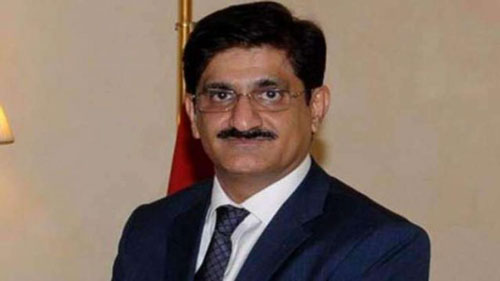Staff Reporter Karachi
The Sindh Cabinet was told on Tuesday that a large number of important PAS posts were lying vacant, and the chief minister was urged to issue directives to resolve the issue.
The meeting was held under the chairmanship of Chief Minister Murad Ali Shah at CM House on Tuesday.
The participants were informed that Sindh, during the last three years, on average has been facing a 50 per cent shortage of grade BS-21 officers of Pakistan Administrative Service (PAS) and a shortage of over 75 per cent of BS-20 officers and 80 per cent of grade BS-19 officers.
Subsequently, the provincial cabinet decided to declare 58 posts of grade BS-21 and BS-20 as floating posts.
The cabinet also decided to declare the 11 posts of BS-21, including that of chairman Planning & Development Board, chairman CM Inspection & Enquiries Team, chairman Anti-Corruption Establishment and Commissioner Karachi Division, as floating posts in BS-20/BS-21.
On declaring such posts in BS-20/BS-21, the same can be filled from amongst the BS-20 officers of PAS, Ex-PCS and PSS also on the basis of seniority, it was informed.
The cabinet was further told that due to the heavy shortfall of officers and cancellation of additional and look-after charges by the courts of law, a large number of important posts were lying vacant, adversely affecting the functioning of the provincial government’s institutions.
In such a situation, it was observed, the ultimate sufferer was the general public. It was revealed in the cabinet that there were 25 posts of grade BS-21 in Sindh, of them 16 posts belonging to PAS as their share.
Currently, the participants were informed, five positions of PAS are operational while 11 posts of grade BS-21 were vacant.
Similarly, out of the 142 sanctioned posts of BS-20 grade, the PAS has a share of 67 posts, but only 19 positions are filled, while 48 posts are vacant.
Out of the 277 posts of grade BS-19, the PAS has a share of 59 posts, against which only 25 positions are filled, while 34 posts are vacant.
The chief minister said that in order to ensure smooth functioning of government institutions, effective and efficient service delivery, filling up of at least important positions was a sine qua non.
The heavy shortfall’s cause was cited as the federal government’s reluctance to transfer them to Sindh against their share, the meeting was told.









